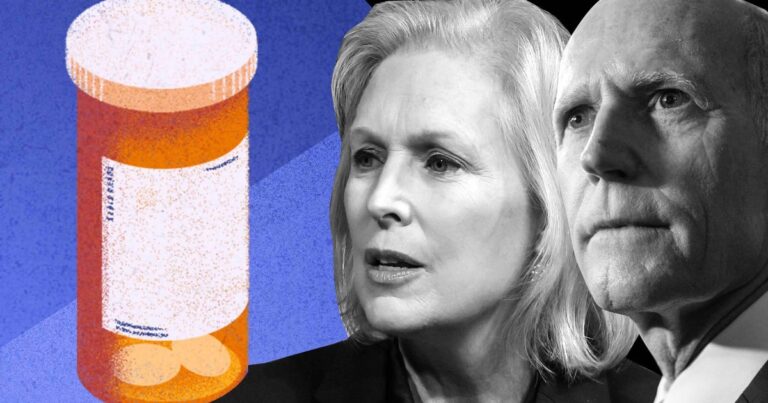ProPublica is a nonprofit news company that investigates abuses of power. Sign up to receive the biggest stories as soon as they’re published.
Lawmakers leading the Senate Select Committee on Aging are proposing a series of sweeping changes that could change the way the government protects the quality of essential generic medicines.
Citing a recent ProPublica investigation, the senators said the Food and Drug Administration should warn hospitals and other group purchasers when foreign drug companies are given special permission to send products to the United States with serious safety or quality deficiencies.
Since 2013, the FDA has secretly allowed more than 20 troubled overseas factories, mostly in India, to continue shipping certain drugs even after the facilities were banned due to concerns about contamination and other violations, ProPublica reported. The agency did not actively track whether imported drugs were harming users and largely kept its actions hidden from the public and Congress.
In a recently released report, committee chairman Sen. Rick Scott (R-Fla.) and ranking member Sen. Kirsten Gillibrand (D.Y.) criticized the FDA for not informing Congress “in some way” about the practice, calling it “a failure on the FDA’s part to protect public health.”
Scott and Gillibrand also called on the FDA to do more testing of generic drugs, rather than relying on foreign manufacturers’ assurances that the drugs are safe and effective. India supplies about half of the generic drugs used in the United States, and many of the key ingredients are produced in China, the report said.
“The United States’ over-reliance on foreign-made generic drugs, especially those manufactured in hostile countries, is a very real threat to all Americans, especially our aging population,” Scott said.
The report marks a significant expansion of the senators’ bipartisan call to protect America’s drug supply.
After a hearing last month, Scott and Gillibrand asked the FDA for an immediate report on all foreign generic drug manufacturers allowed to circumvent the import ban. And last week, they sent a letter to Secretary of Health and Human Services Robert F. Kennedy Jr. asking for clarification on the drug supply chain and the risks of shortages. The letter also cited ProPublica reporting on exemptions from FDA import bans and said these actions could pose a “threat to drug safety for U.S. consumers.”
The FDA said the exemption was granted to prevent stockouts and requires manufacturers to conduct additional quality testing under third-party oversight to ensure the drug’s safety.
In response to inquiries from ProPublica, HHS, which oversees the FDA, declined to comment on the report or the letter to Kennedy, saying it would respond directly to the senators.
The 34-page report focuses primarily on strengthening domestic manufacturing. The senators cited an academic study published this year that found that generic drugs made in India are associated with far more hospitalizations, deaths and other adverse events than comparable drugs made in the United States.
“We moved the industry overseas for cost reasons without adjusting the regulatory infrastructure to adequately address it,” said John Gray, a professor at Ohio State University who co-authored the study. “There is a race to the bottom, which leads to vulnerabilities, shortages, and even potential quality issues.”
Notably, senators have suggested the Pentagon could help set up a “federal buyer’s market” that would prioritize purchasing drugs from domestic manufacturers. The federal government, with agencies such as the Department of Veterans Affairs, is the nation’s largest purchaser of drugs.
The Department of Defense is currently conducting its own trials of generic drugs widely used by U.S. military personnel and has already reported finding efficacy and other quality issues.
“If these recommendations are implemented, it will truly be a reset of the U.S. health care system,” said Vic Suarez, a retired Army colonel who helped launch the Pentagon testing project. “Bringing all federal agencies together to do this in one coordinated acquisition strategy creates a truly exponential impact that we have never seen before.”
The senators said federal purchasers could be required to buy drugs made in the U.S. using U.S. ingredients if domestic manufacturing capacity is increased over the next 10 years.
The report also focuses on transparency, stating that manufacturers should disclose on product labels the countries in which medicines and their key ingredients are manufactured.
“In the world’s wealthiest country, citizens should not have to worry about the safety or availability of the medicines they need to fight devastating diseases,” Gillibrand said.
A Threat to Your Medicine Shelf: The FDA’s Bet on America’s Drugs


